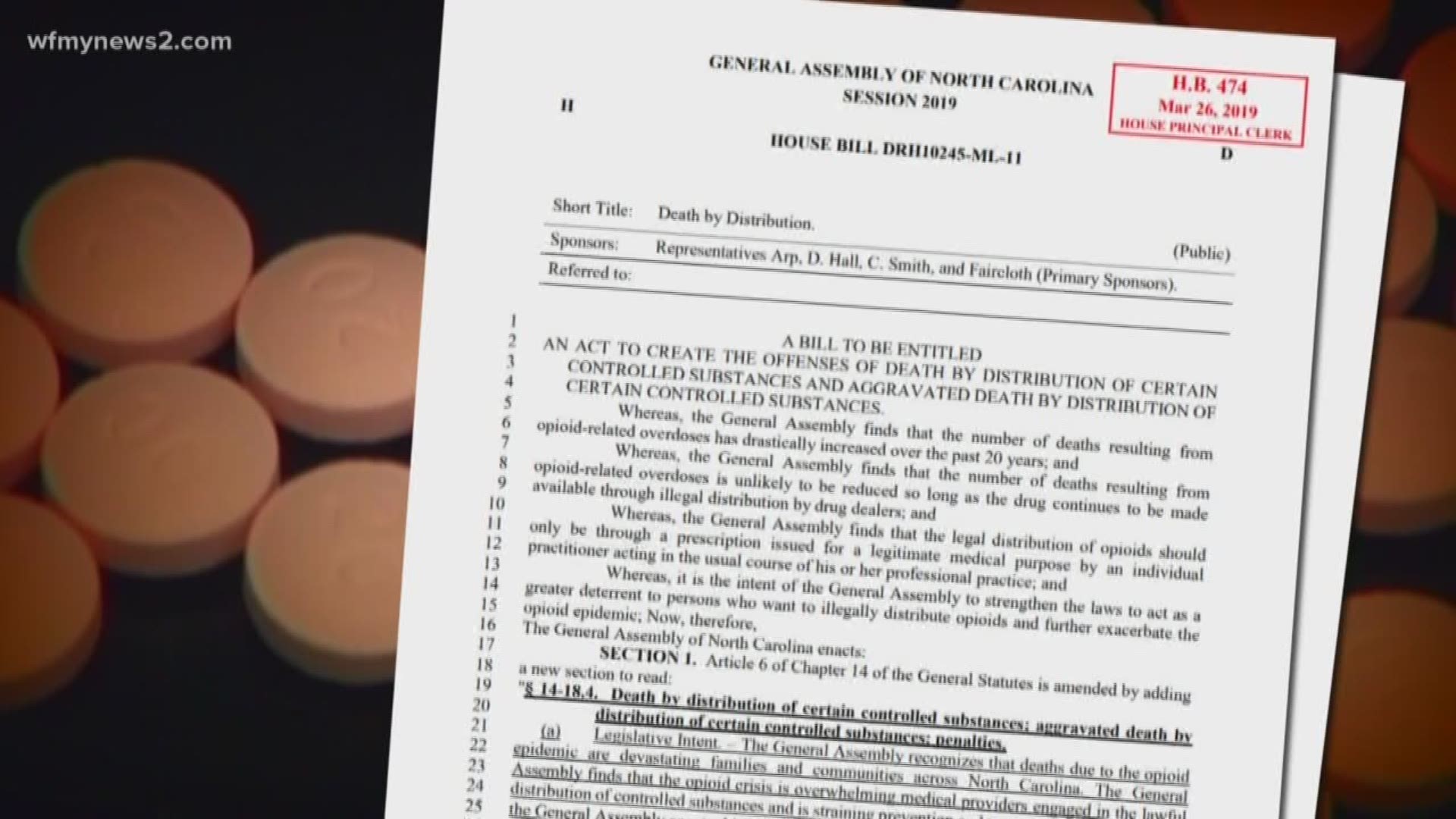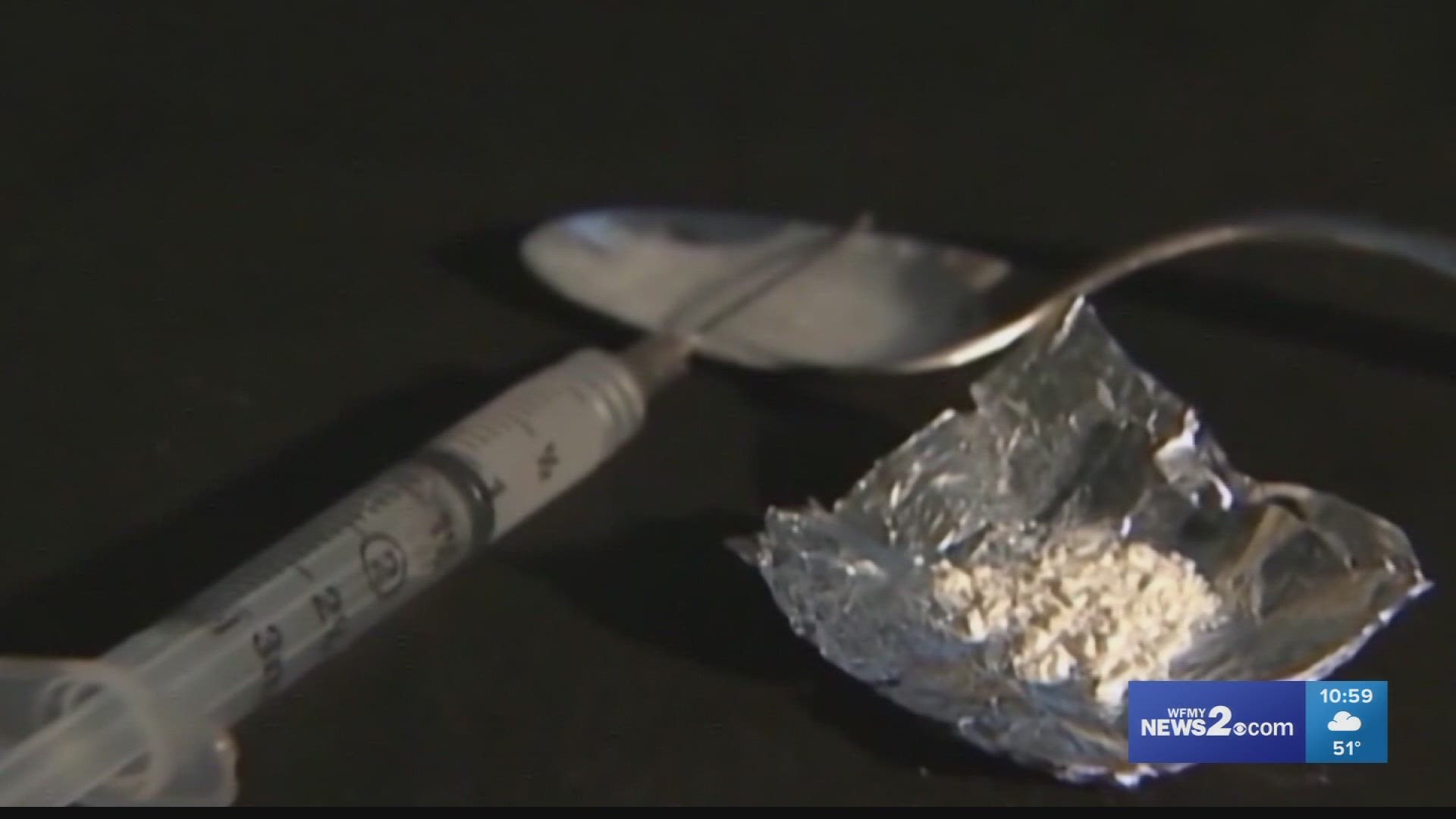GREENSBORO, N.C. — 'Death by Distribution' -- it's a proposal by state lawmakers to fight the growing opioid crisis. The bill would target drug dealers and anyone who gives a lethal dose of drugs to someone. If it becomes law, a drug dealer could face prison time if a person (customer) dies from an overdose.
The newly proposed bill has supporters, but others say, it contradicts a law already on the books: the 'Good Samaritan' law. Under that law, someone who calls 911 to report an overdose doesn't get punished for doing it.
Randy Abbott from Greensboro is one of those people opposing 'Death by Distribution,' saying, if it passes, people won't call for help. He thinks people would be afraid since they could face charges if, in fact, they gave the drugs to the person who overdoses.
"If we start punishing people that need help, that's just not the way to do it," he said, "People are going to be scared to dial 911, so we are going to see the death toll rise. And the goal here is to stop that, to stop people from dying, and to get people into treatment."
Abbott's daughter, Vanessa, died from a heroin overdose in 2015. He says, she got the drugs that killed her from her best friend - someone who was also suffering from her own addiction.
"My daughter...God bless her, I love her to death, but she asked for the drugs," Abbott said, "The young lady who gave my daughter the drugs, trying to detox, was very dope sick, and all she could think about at that time was if I could get her drugs, then I can take enough off the top to get over being dope sick."
He took his concerns to Raleigh, urging lawmakers to vote against the death by distribution bill. Abbott says, something needs to happen, but the current bill needs to be changed.
"It’s grief, it's the passion that families are feeling and they’re pushing for this," he said, "I understand it, I understand every bit of the grief. What we have to be careful of we cannot let our passion and our grief stand in the way of us trying to think of somewhere logically and understand what’s really happening."
What makes this bill unique is that it would carry heavier charges than manslaughter, but prosecutors wouldn't have to prove intent to kill. Sentences proposed range between 3 and 17 years. As of now, the bill moved to a committee, but there hasn't been a vote yet.
DRUG ADDICTION RESOURCES
Here’s a list of resources to guide you or a loved one with getting the help you need and on a path to recovery.
DRUG ADDICTION HOTLINES
SAMHSA’s National Helpline
The SAMHSA’s National Helpline is free, confidential, 24/7, available 365 days a year for treatment referral and information services.
Call 1-800-662-HELP (4357) or visit the online treatment locators.
National Council On Alcoholism And Drug Dependence
24-hour hotline 1-800-622-2255
More Details: National Council on Alcoholism and Drug Dependence
211 Drug Recovery Addiction Hotline
If you or someone you know has symptoms of drug addiction dial 2-1-1 from any cell phone or landline for help. This is a confidential call and you will be connected with an organization that specializes in recovery.
Another number to call 866-401-6342 is a toll-free number that is available should your service provider be unable to connect to 2-1-1.
More Details: United Way Substance Abuse Addiction Services
Triad Drug Recovery Addiction Services
Call the Alcohol and Drug Services 1-855-801-9817
SIGNS OF AN OVERDOSE
Do You Know The Signs Of An Overdose?
- Snoring or Gurgling
- Floppy arms or legs
- Blue/gray lips or fingertips
- Cannot be woken up
- Shallow, or no breathing
- No response to stimuli
Information provided by IOAD.
WHEN TO CALL AN AMBULANCE
People are often reluctant to call an ambulance for fear of police involvement or concern about the cost of a call-out. The police will only attend if there is a fatality or if their presence is requested, for example, if the ambulance crew feel threatened. This is an issue worldwide.
In addition to unconsciousness, call for emergency help when someone is:
- Having a seizure
- Experiencing severe headache
- Experiencing chest pain
- Experiencing breathing difficulties
- Extremely paranoid, agitated and/or confused
- It is not necessary for someone to have all of these signs or symptoms for them to be overdosing. Exhibiting only a few could still mean they are in trouble and need emergency help.



